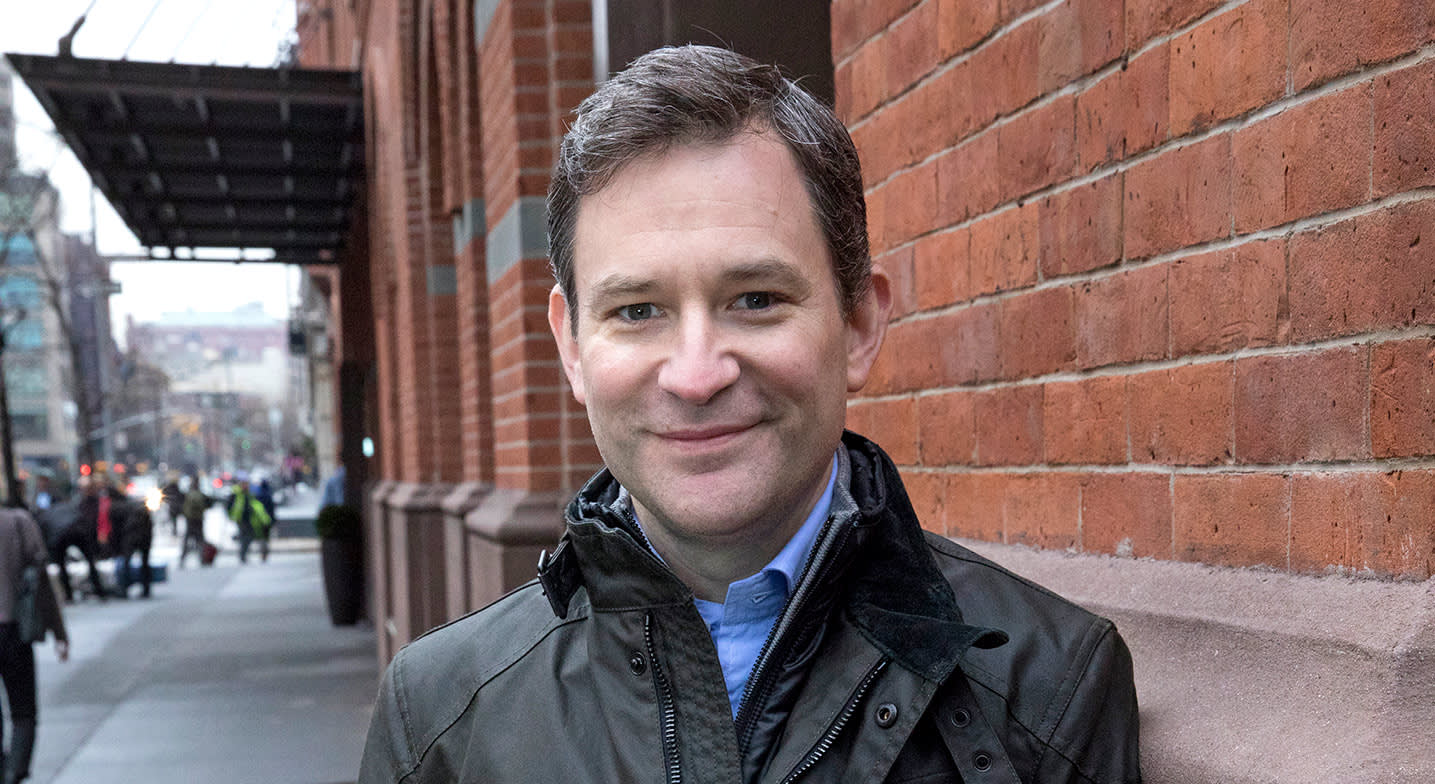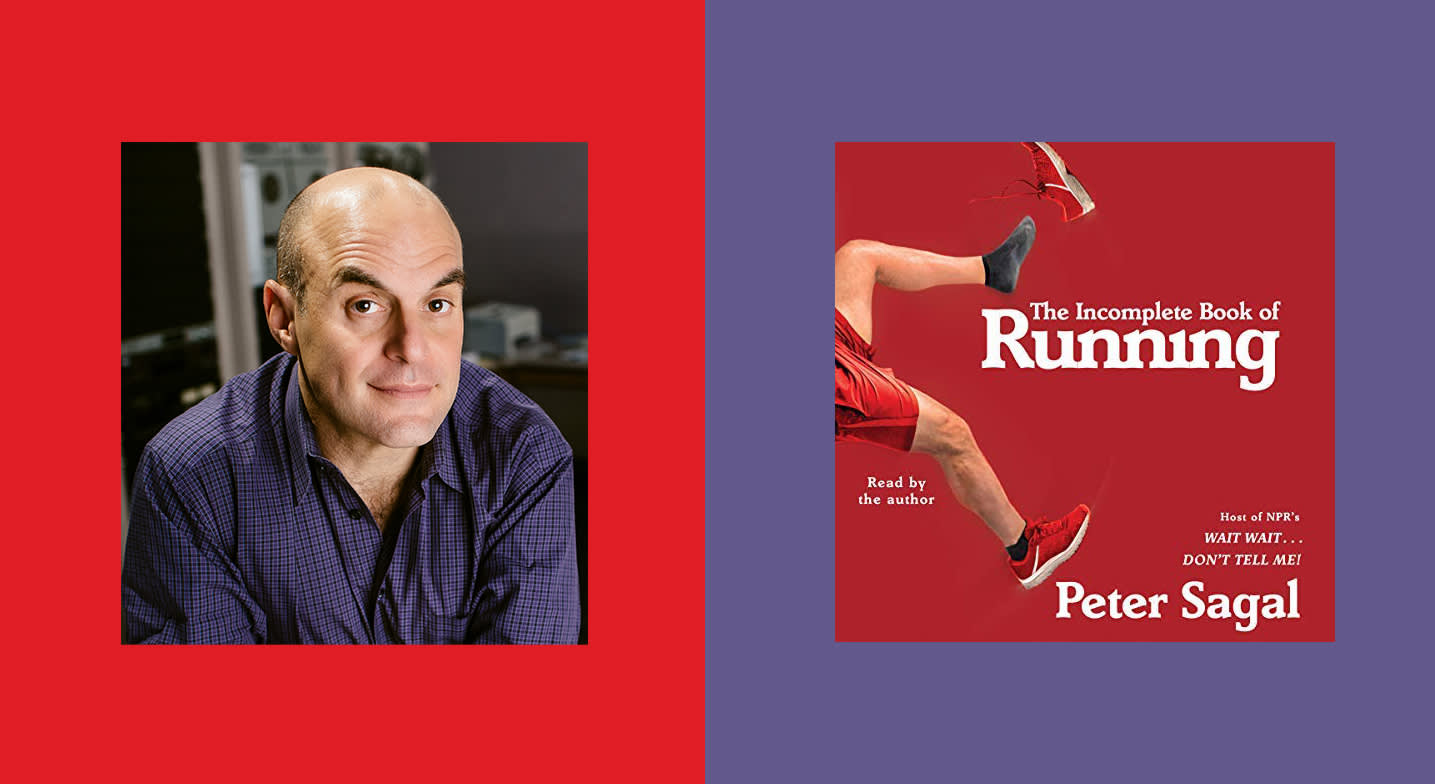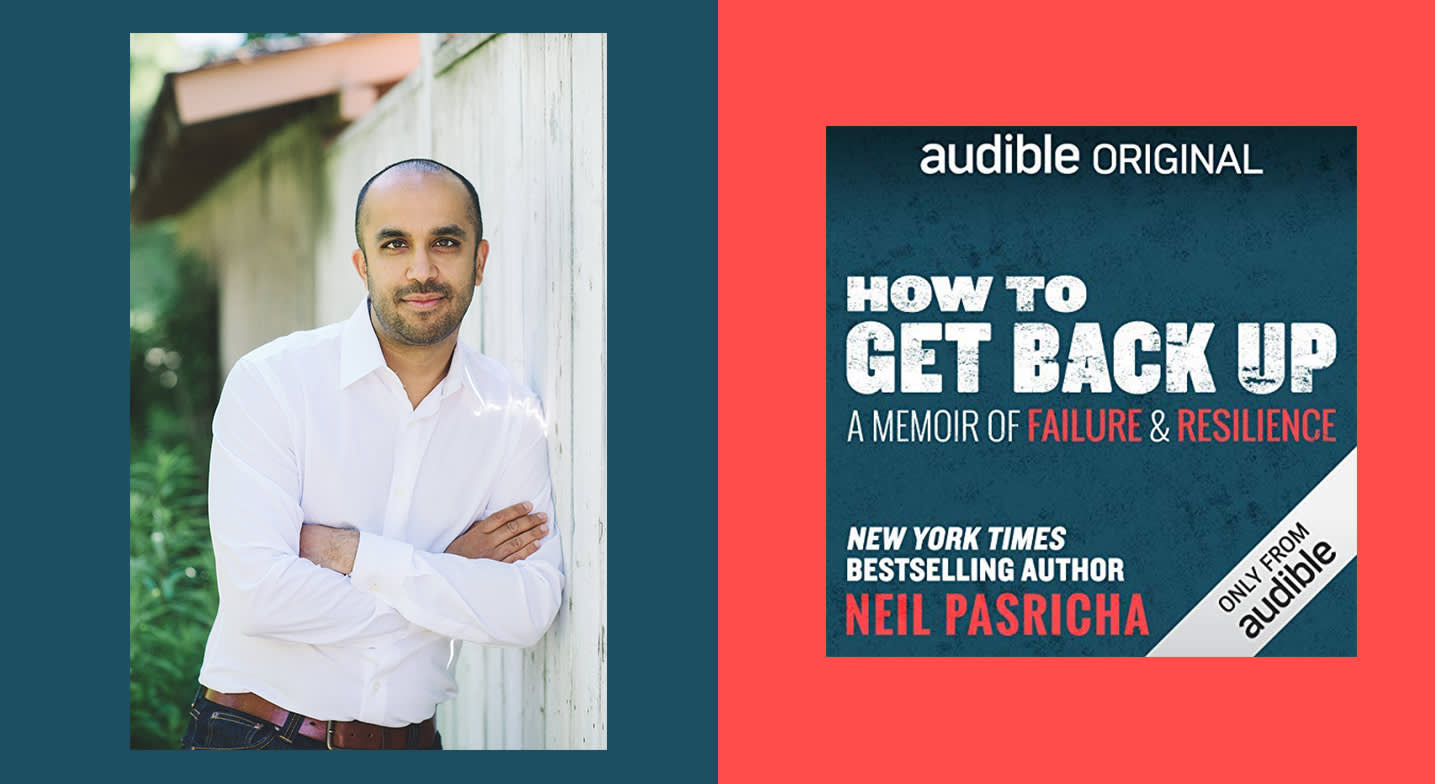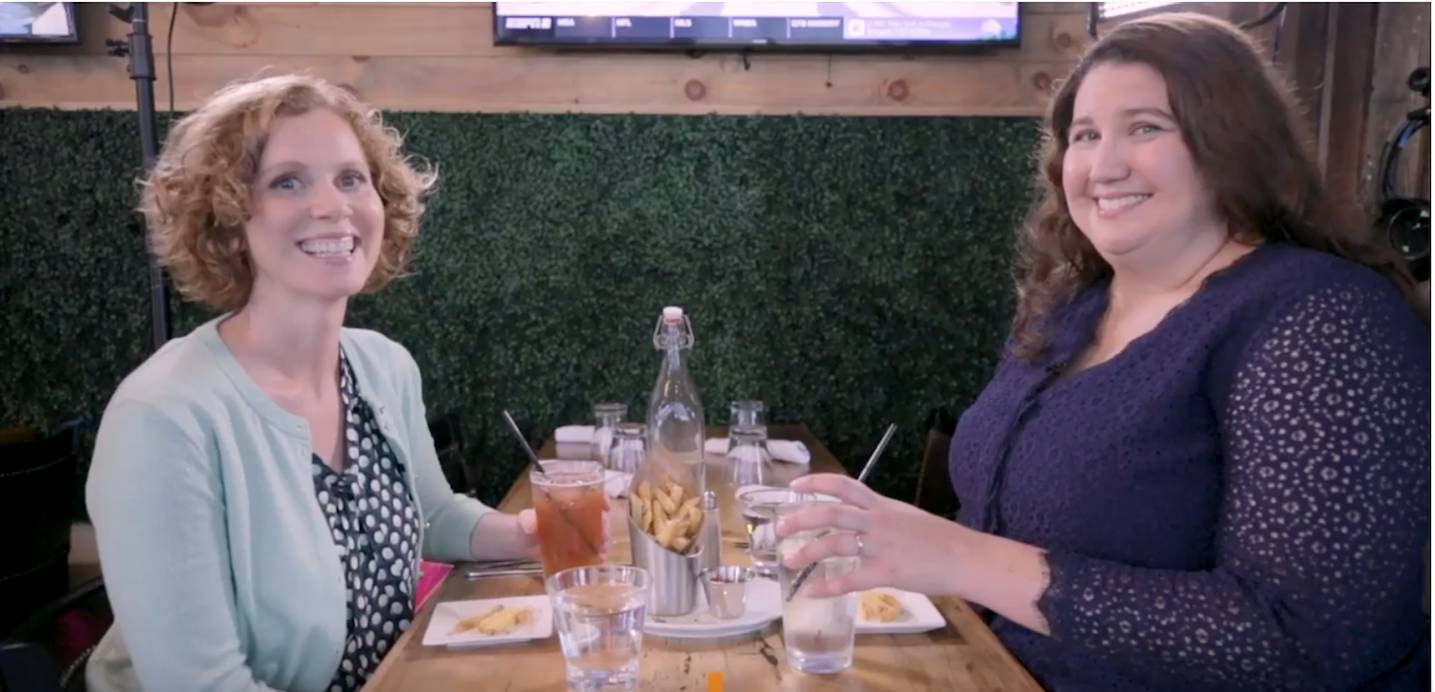If you're one of the million or so people (in our unscientific, rough estimate) who've vowed to begin a meditation habit but don't know where to begin, Dan Harris can relate - and is here to help. Harris himself used to be a "fidgety skeptic" of the woo-woo seeming claims and incense-and-crystals aesthetic surrounding mediation, but after his highly public panic attack went viral, he knew it was time for a change. And as the title of his book, Meditation for Fidgety Skeptics, brilliantly suggests, meditation is something even the most chin-scratching among us can get into.
Audible editor Kyle Souza sat down with Harris to talk about how you, too, can become a happy meditator.
Kyle Souza, Range: As you know, and you've written a couple of books about it, meditation: it's difficult for people to start. So, without giving too much away from your book, what advice would you give people who think they want to start meditating, or maybe aren't sure if they want to, but heard it was a good idea and just don't know how to go about it?
Dan Harris: I think the first thing to do is to just commit to doing it and to know that it doesn't have to be a huge commitment. The number one obstacle to starting a mediation habit seems to be time. People feel like they're overwhelmed, time starved, and that is exacerbated by the current technological environment we inhabit--with all due respect to Amazon and Audible and--
KS: No, no, no offense taken [laughs].
DH: And I think, as I say in the book, when it comes to the issue of time, I have good news and even better news. The good news is that I think five to 10 minutes a day is a really respectable habit, meditation practice. From what I can tell from talking to neuroscientists who study what mediation does to the brain, it appears that five to 10 minutes may be just fine if you want to derive many of the advertised benefits. And the even better news is that if you don't feel like you have five to 10 minutes a day, one minute counts! And it doesn't have to be one minute every day. It can be what I call "dailyish," and I find that setting the bar at that level--one minute, most days--is a very easy bar to vault, and the first thing you want to do is get the habit established in your life and then if you want to grow it from there you can. I have a lot of things that I would say to people who want to get a mediation habit started, but it really depends on what their issue is.
KS: Have you found there are certain techniques, outside of just simply meditating, that you found as benefit that could help people who are maybe looking to tackle some other loftier goals? Have you found that mediation has helped you develop some other positive habits in your life?
DH: What mediation is really good for, among other things, is seeing your urges and impulses and desires without being owned by them. Meditation, I like to say, has been the victim of the worst marketing campaign for anything ever. It's got all of this mystical malarkey surrounding it. It really is just exercise for your brain and the results of the exercise, and you'd see it on the brain scans, is that you are more self-aware and that increased self-awareness can help you see when you have urges to eat something you probably shouldn't eat, or smoke something you probably shouldn't smoke, or tell yourself a whole story of how you don't need to go to the gym because you'll never be able to keep doing it anyway, and your uncle Robert is overweight and your destined to be like him, blah, blah, blah. Just to see that that is a story and that it will pass just like any urge that washes over you. In meditation, you learn how to be able to see these things clearly without being carried away by them, and that is an enormously useful inner-judo move that can amplify all of the healthy habits you're trying to create.
KS: I like that, "Inner-judo move."
DH: Yeah, that's really what it is because you can't stop your urges and impulses and your nasty lines of thinking that you've developed over the course of your life. The point isn't just to magically makeover your brain and your mind. The point is to see what's there without being yanked around by it, and that's what meditation allows you to do. It's not fancy, it really is like exercise, except with a lot less sweat. You basically create for yourself your own inner meteorologist who sees the storms before they make landfall, and allows you to kind of navigate your inner and outer environment with more suppleness and sophistication. It doesn't solve all of your problems, but it does often change your relationship to those problems and allow you to come up with better solutions.
KS: What do you think the advantages are in audiobook form for those interested in Meditation For Fidgety Skeptics?
DH: Let me just say, generally, I'm a huge consumer of audiobooks. I love audiobooks. I often listen to them when I'm working out, and I find that it's just a great way to consume really in-depth content. I think we've seen a real cultural shift here that is fascinating, and is allowing people who maybe don't like to read so much, or don't feel like they have the time for it, to consume really enriching content that they otherwise would never have consumed. So, first of all, the benefit of this book on audio is that, on the easiest level, the simplest level, is that people who otherwise wouldn't read, will listen. So that's just huge. The other benefit is that we really put a huge premium on humor. I like to joke that there are no original ideas in my book. I'm not a meditation guru. All I figured out is that nobody was talking about mediation and using the word 'fuck' a lot, and that is my innovation.
KS: What a great innovation it is.
DH: [Laughs] I'm just trying to make this thing attractive to people like me, who are fidgety skeptics, and wouldn't otherwise be doing this. So, I think the humor in the book comes through when you hear (co-author and meditation coach) Jeff Warren and I read. We recorded a lot of the sessions, there's a lot of call and response in the book where we're kind of talking to each other on the page. He was in his hometown of Toronto and I was in New York, but we were wired together so we could have it as a conversation. We ad-libbed things and there's a special Q&A at the end where we talk about the making of the book. The book, on one level is supposed to teach you how to meditate, but on another it's a gonzo road trip and there's all sorts of funny things that happen. So, to be able to bring that to life by reading it--my whole training as a TV news reporter is when I write things, I then read them aloud so I write for spoken word - so for me, the audiobook is, in many ways, kind of the ideal format.






